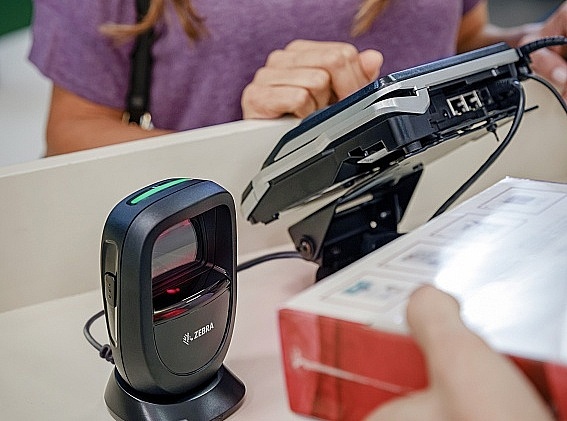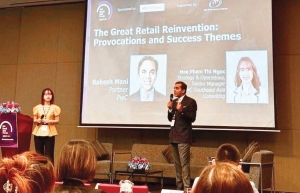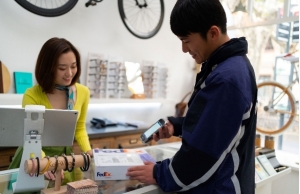APAC retailers turn to technology investment to drive profitability
This is part of the findings of the 16th Annual Global Shopper Study announced on May 21 by Zebra Technologies Corporation (NASDAQ: ZBRA), a leading digital solution provider enabling businesses to intelligently connect data, assets, and people.
 |
Accordingly, globally, eight in 10 retailers agree minimising fraud/shrink is a significant challenge (82 per cent), and the ability to forecast demand is important to their organisation (86 per cent). In APAC, retailers’ responses stand at 74 per cent and 89 per cent, respectively.
According to the National Retail Federation (NRF), retailers lost $112 billion due to shrink in 2022, up from nearly $94 billion in 2021. The Zebra study indicates 36 per cent of global retailers (40 per cent in APAC) believe better analytics on shrink could help drive profitability. Many retailers expect to deploy loss prevention analytics (49 per cent globally, 55 per cent in APAC), and demand planning and forecasting (54 per cent globally, 61 per cent in APAC) by 2026.
While omnichannel shopping causes challenges for retailers, most shoppers prefer having options. Nearly eight in 10 global and APAC shoppers favour a blend of online and in-store shopping, while 75 per cent of global and 72 per cent of APAC shoppers choose to shop with online retailers that have a bricks-and-mortar location.
As omnichannel shopping continues to grow, the volume of returns increases. Around seven in 10 of global and APAC retailers say the pressure is mounting to improve the efficiency and expense of managing online orders, returns, and the fulfilment process. Six in 10 retailers say they are upgrading their returns management technology by 2026. In APAC, more retailers are in the process of upgrading at 74 per cent, 12 per cent higher than the global retailers surveyed.
Store associates will be pleased with this technology investment. Among the associates managing returns from online orders, nearly three-quarters (74 per cent globally and in APAC) cite frequent returners as their top challenge. This year, the ease of making returns has moved ahead as a leading reason shoppers choose to shop in stores, outpacing comparison shopping. While easy returns for global shoppers have increased slightly (32 per cent in 2022 to 33 per cent in 2023), APAC shoppers reported the greatest increase of 7 per cent, from 32 per cent in 2022 to 39 per cent in 2023. The increase in returns has impacted retailers globally, growing to $1.8 trillion, according to IHL Group.
“Retailers are recognising that technology needs to be smartly employed when dealing with returns,” said Christanto Suryadarma, sales vice president for Southeast Asia, South Korea and Channel APJeC, Zebra Technologies. “While consumers have higher expectations to easily return items more frequently, retailers find themselves in a tailspin trying to manage the increased expenses associated with inventory visibility, reverse logistics, and a high-level of returns.
The returns conundrum also impacts related industries, particularly warehousing. Retailers are tapping into the power of technology to help manage returns with 62 per cent globally (68 per cent in APAC), saying they plan to deploy reverse logistics technology by 2026 to better manage fulfilment pressures. Nearly three in 10 (31 per cent globally, 32 per cent in APAC) retailers think charging a fee for online orders from frequent returners could potentially improve the overall profitability of this sector.
Anticipating the advancement of retail offerings, consumers understandably have high expectations for technology. In fact, eight in 10 of surveyed consumers (80 per cent globally, and 81 per cent in APAC) expect retailers to use the latest technology, and seven in 10 (74 per cent globally, 77 per cent in APAC) say it improves their shopping experience. In alignment with this trend, over half of retailers plan to deploy handheld mobile computers (56 per cent globally, 64 per cent in APAC), scanners (54 per cent globally, 61 per cent in APAC), and radio frequency ID (61 per cent globally, 69 per cent in APAC), as well as task (54 per cent globally, 62 per cent in APAC) and workforce (56 per cent globally, 62 per cent in APAC) management software by 2026.
“To successfully operate a modern store in Vietnam today, it is critical for retailers to invest in technologies that elevate the customer experience, engage associates, and optimise inventory,” said Suryadarma. “With the rise of omnichannel shopping, Vietnamese consumers demand the way they browse, acquire, consume, and return merchandise to be seamless wherever they shop. To effectively build brand preference, retailers will need to adapt and work in new ways with technology to deliver the shopping experiences consumers in Vietnam expect more profitably.”
Zebra’s 16th Annual Global Shopper Study surveyed over 4,200 shoppers, store associates, and retail decision-makers globally to gauge their opinions and expectations on today’s shopper experience, technology usage, and fulfilment from June-July 2023 by Azure Knowledge Corporation.
 | Business model reinvention a priority for all retailers There are challenges, opportunities, and transformation priorities in Vietnam’s retail sector. |
 | Cost juggling continues for retailers Retailers in Vietnam are still determined to expand their operations, at a time when prominent groups reorganise their operations to cut costs. |
 | Southeast Asia tops growth market for APAC region SME leaders in Asia Pacific see the greatest potential for growth in Southeast Asian countries, including Thailand, Vietnam, and Indonesia, according to a new FedEx survey. |
What the stars mean:
★ Poor ★ ★ Promising ★★★ Good ★★★★ Very good ★★★★★ Exceptional
 Tag:
Tag:
Related Contents
Latest News
More News
- Vietnam-South Africa strategic partnership boosts business links (February 06, 2026 | 13:28)
- Mondelez Kinh Do renews the spirit of togetherness (February 06, 2026 | 09:35)
- Seafood exports rise in January (February 05, 2026 | 17:31)
- Accelerating digitalisation of air traffic services in Vietnam (February 05, 2026 | 17:30)
- Ekko raises $4.2 million to improve employee retention and financial wellbeing (February 05, 2026 | 17:28)
- Dassault Systèmes and Nvidia to build platform powering virtual twins (February 04, 2026 | 08:00)
- The PAN Group acquires $56 million in after-tax profit in 2025 (February 03, 2026 | 13:06)
- Young entrepreneurs community to accelerate admin reform (February 03, 2026 | 13:04)
- Spring Fair 2026 launches national fair series (January 30, 2026 | 16:17)
- SnP celebrates 10th anniversary with new brand identity (January 30, 2026 | 14:41)


























 Mobile Version
Mobile Version